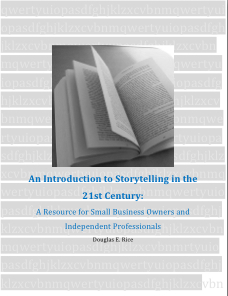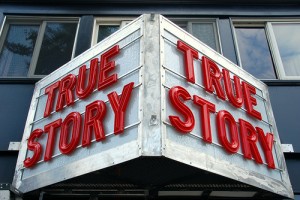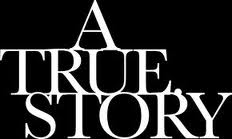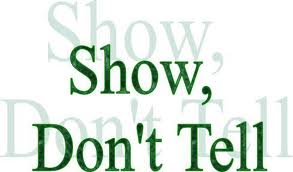A convergence of three recent articles tickles my fascination with differences in how we tell our stories in the virtual world vs. “in real life.”
In one of the posts (which is referenced in the second one), R.I.P. Personal  Branding, Olivier Blanchard expresses a refreshing, iconoclastic view in a careers sector that has been dominated by the you-must-have-a-personal-brand edict for the past several years:
Branding, Olivier Blanchard expresses a refreshing, iconoclastic view in a careers sector that has been dominated by the you-must-have-a-personal-brand edict for the past several years:
People are people. They aren’t brands. When people become “brands,” they stop being people and become one of three things: vessels for cultural archetypes, characters in a narrative, or products. … Can you realistically remain “authentic” and real once you have surrendered yourself to a process whose ultimate aim is to drive a business agenda?
I have long shared this cynicism about personal branding. “Is there really any value,” Blanchard continues, “to turning yourself into a character or a product instead of just being… well, who you are?” And finally, scathingly: “You know what we used to call people with ‘personal brands’ before the term was coined? Fakes.”
In Is Your Personal Brand Fake?, inspired in part by Blanchard’s post, my colleague Barbara Safani seems to take the view that personal branding is OK as long as it’s not fake. For example, the identity — or brand — she projects on Facebook, she contends, is authentically her:
People who friend me on Facebook see the gray. Sure, they get job search advice, links to great articles and resources, and motivating success stories about my clients and all of this helps build their confidence in me as a professional. But they also see what types of things I am interested in and they get a feel for who I am as a New Yorker, a mother, a daughter, a friend. And if they dig deeper they will figure out that I love dark chocolate, running in Central Park, and high-heeled shoes. They get the panoramic view of me rather than just the professional headline. People want to hire people that they relate to and connect with.
Barb contrasts the projection of one’s personal brand on Facebook with that on LinkedIn, which she implies may be “boring, one-dimensional and not believable … [j]ust like many of the LinkedIn profile headlines I read…Visionary CEO…Dynamic Marketing Executive, Results-Oriented Operations Manager…”
She’s saying, I believe, that it’s possible to express an authentic brand but easier (or perhaps, more expected) to do so in some online venues than in others.
According to the third post, we do authentically express our real selves in social media, especially on Facebook. In Study: Your Facebook Personality Is The Real You, Alicia Eler reports on an academic paper revealing results of two research studies that conclude “Facebook users are no different online than they are offline.”
It’s not hard to find flaws in the studies. One suggests that the number of one’s Facebook friends correlates with extroversion. I have a higher than average (130 friends, according to Facebook’s stats) number of friends, but I attribute that at least in part to the fact that I have been on Facebook longer than many people — since 2005, when only people with .edu email addresses could belong.
Still, I agree, like Barb Safani, that what you see of me on Facebook is pretty much authentically me. One exception is politics. I hold strong political feelings, “feelings” being the operative word. I expend a lot of time and energy trying to avoid political punditry because it makes my blood boil. Similarly, I avoid engaging politically in social media because I’m too emotional about it to make rational arguments. This avoidance is admittedly difficult in an election year. But I digress …
To avoid fakery in the way we project ourselves — whether online or in real life — we need to think in terms not of personal branding but of personal storytelling. We have amazing tools to do that these days. Blanchard writes, for example:
If I have learned anything from Facebook’s new Timeline feature, it’s this: It’s fun to be yourself. It’s easy to forget that, especially when the “personal branding” industry would have you shift your focus away from the little flaws that make you… well, you.
Ask yourself if you are authentically telling your story in all your interactions and look at the differences in how you tell it from venue to venue.
 Cowen.
Cowen.










